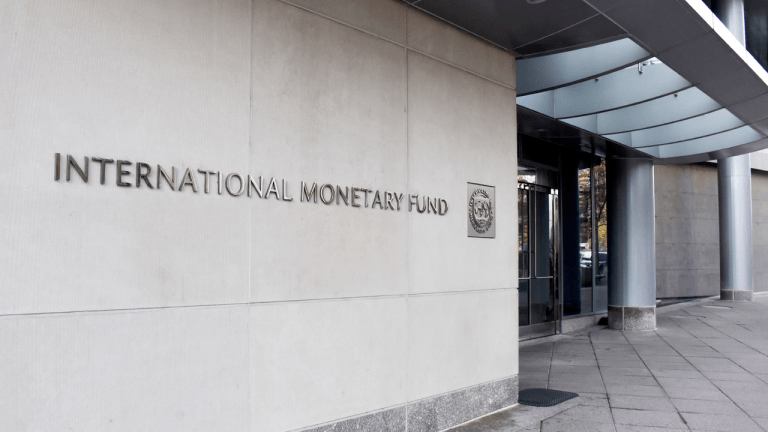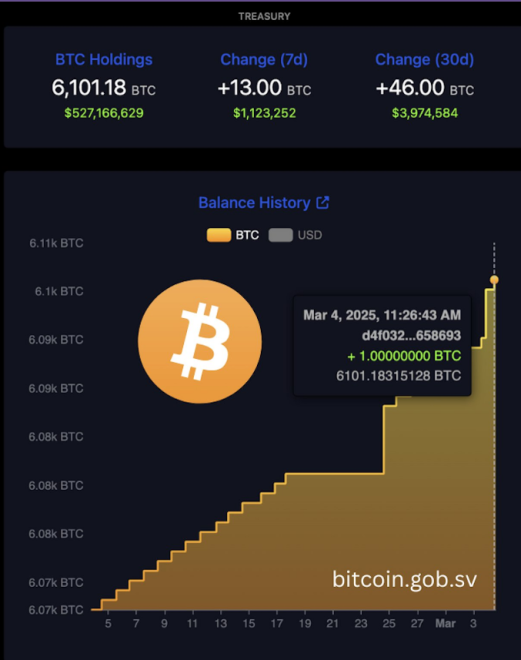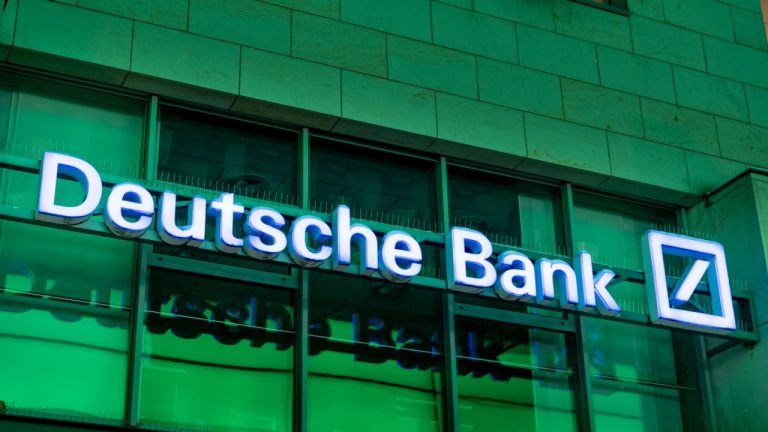 | Click here to view original content. This week's updates include: - Ethereum's Logarithmic Regression Rainbow: ETH is back between band 4 ($1,678) and band 5 ($2,883) after backtesting band 4 last week for the first time since March 2021.
- Bitcoin's +1 Yr. HODL Wave: This week's reading of 54.4% is only slightly lower than last Monday's reading of 54.65%; this suggests that despite BTC's latest sell-off, hodlers were unfazed.
- Bitcoin's Bull Market Weekly Support: BTC is currently below its bull market weekly support band for a second consecutive week; a weekly close above the 20W EMA and 21D SMA could send BTC meaningfully higher if/when realized.
- Bitcoin's Monthly Upper Bollinger Band & RSI: BTC's 14-month RSI of 64.2 ("neutral") marks the oscillator's lowest reading since September 2020 when BTC ended the month at $10,770.
- Bitcoin's MVRV Z-Score: BTC's current z-score of 1.65 is the indicator's lowest reader since October 20, 2020, when BTC was at $11,900.
- Bitcoin's SOPR Indicator: BTC's SOPR indicator (7-day moving average) is below a reading of 1 for the first time since August 2020 and is at its lowest reading since March 2020; such suggests that recent selling pressure has/will subside in the forthcoming days/weeks.
- Bitcoin's Stock-to-Flow Ratio: Per BTC's Stock-to-Flow ratio, the last time BTC was this "oversold" was July 2017.
“All models are wrong, but some are useful.”
- George E. P. Box Ethereum's Logarithmic Regression Rainbow https://preview.redd.it/m9n09zfk5a171.png?3398&format=png&auto=webp&s=215c872c930681de2605e6c9a3621f0d96d91484 How To Read This Chart: - Using ETH’s historical price action, we can plot logarithmic regression trendlines that coincide with historical levels of support and resistance.
- These lines can be useful for navigating bull and bear market cycles, as well as for identifying critical levels of support and resistance.
- Do note that with each day that passes, ETH's logarithmic regression rainbow trends higher. This means the longer ETH can continue to trend higher to the next subsequent regression trendline, potentially the higher the market cycle top.
What You Should Know: - At a current price of $2,618, ETH currently resides between Band 4 ($1,678) and Band 5 ($2,883).
- ETH's sell-off last week coincided with a backtest of band 4 ($1,678) support. If ETH can break through band 5 ($2,883) in the forthcoming days, we could see ETH press higher into 3Q.
- ETH would have to rally +10% to test resistance at $2,883 and would have to correct -36% to test support at $1,678.
- A move up to Band 8, which coincides with ETH’s previous market cycle top, would imply a $16,308 Ether and a +347.1% return from current price.
Bitcoin's +1 Yr. HODL Wave https://preview.redd.it/km8mynvt5a171.png?3518&format=png&auto=webp&s=32808a0cd8ff9652b763035c2a55374c9305fd9f How To Read This Chart: - BTC's +1 Yr. HODL Wave shows what percentage of coins in circulation haven't been moved in at least 1 year.
- When charted against BTC's price, one can identify trends that coincide with bull and bear market cycles.
- Historically, a local top in the +1 Yr. HODL wave is congruent with the start of a new bull market. When the number of untouched coins begins to decline amid rapid price appreciation, one can be confident that a new bull market cycle is likely underway.
- When the downward slope of the HODL wave grows increasingly steeper, one can assume that selling pressure is beginning to increase and supply is likely to outpace demand. As such, a cycle top is presumably creeping closer.
- Prior to hitting a local high, a gradual increase in the +1 Yr. HODL wave signals that market participants are in "accumulation mode."
What You Should Know: - BTC's current +1 Yr. HODL Wave reading sits at 54.4%, i.e. 54.4% of all coins in circulation haven't been moved in more than a year. This is down -9.0 percentage points from a local top of 63.4% set on September 9, 2020.
- Despite BTC's latest correction, the +1 Yr. HODL wave is little changed week-over-week. Last Monday's reading came in at 54.65%, only slightly higher than this week's reading of 54.4%.
- On January 31, 2013, BTC's +1 Yr. HODL Wave hit a local high of 48.2% and the price of BTC was at $20.40. When BTC hit a cycle high of $1,158 on November 30, 2013, the +1 Yr. HODL Wave reading was at 38.8%. That is, over the course of 303 days, the number of coins that hadn't been moved in more than a year had fallen 9.4 percentage points while price appreciated +5,580%.
- On January 19, 2016, BTC's +1 Yr. HODL Wave hit a local high of 61.5% and the price of BTC was at $380. When BTC hit a cycle high of $19,660 on December 17, 2017, the HODL Wave reading was at 43.1%. That is, over the course of 698 days, BTC's HODL Wave fell -18.4 percentage points while price appreciated +5,073%.
Bitcoin's 200W Moving Avg. Multiple https://preview.redd.it/ag959mew5a171.png?3568&format=png&auto=webp&s=09bd32a1c1314bd741d987ba645963a79e1187f1 How To Read This Chart: - 200W Moving Average: A critical level of support used to determine an overall long-term market trend. The trendline measures the average price of BTC over the prior 200 weeks.
- Moving Average Multiple: The multiple with which BTC is trading at relative to its 200-week moving average. For example, a multiple of 4.0x means BTC is trading at 4x its 200-week moving average.
What You Should Know: - In prior bull market cycles, BTC has traded as much as 10x - 15x its 200-week moving average prior to entering a bear market.
- BTC's 200-week moving average is 3.08x. That is, BTC is trading at 3.08x its 200-week moving average ($12,763), up from last week's multiple of 2.76x.
- Given today's 200-week moving average of $12,763, a 10x - 15x multiple would imply a BTC price of $127,630 - $191,445.
- BTC's 200-week moving average multiple hit a local high of 10.3X for the week of April 4, 2013. On April 9, 2013, BTC hit a cycle high of $259.
- BTC's 200-week moving average multiple hit a local high of 13.2X for the week of November 25, 2013, which coincided with a market cycle top of $1,158.
- BTC's 200-week moving average multiple hit a local high of 15.2X for the week of December 11, 2017. That same week, price hit a cycle high of $19,660.
Bitcoin's Bull Market Weekly Support https://preview.redd.it/4vdq8fiz5a171.png?3402&format=png&auto=webp&s=000a08371cead25ec58dee2e9898a290a22255b8 How To Read This Chart: - BTC's Bull Market Weekly Support tracks two critical levels of support that have acted as last lines of defense in prior bull market cycles: BTC's 20-week exponential moving average and 21-week simple moving average.
- In prior bull market cycles, BTC has mean reverted down to the 20W EMA and 21W SMA before bouncing and resuming its uptrend.
- When BTC breaks below both moving averages, the likelihood of BTC's bull market coming to an end is heightened.
What You Should Know: How To Read This Chart: https://preview.redd.it/o58201256a171.png?3404&format=png&auto=webp&s=332cd7386fd322b8aa8731c98f18b6e805088bee - BTC's logarithmic growth curve consists of two sets of curved trendlines that have historically proven to be critical levels of support and resistance.
- While both lines point to price ranges whereby BTC is arguably "overbought" or "oversold," they also represent a notable underlying property of BTC that can be found in social networks, technological innovations, pandemics, societies, and economics: exponential growth.
What You Should Know: - BTC is a +114% to +181% move away from entering into "overbought" territory, which is currently between $84,114 and $110,129.
- BTC is a -42% to -56% move away from falling into "oversold" territory. This week's range is $17,368 - $22,740.
- At a current price of $39,250, BTC resides in the 42 percentile of the logarithmic growth curve's $17,368 - $110,129 range.
Kraken Intelligence's Bitcoin Logarithmic Retracement Curve https://preview.redd.it/0bcr35h66a171.png?3418&format=png&auto=webp&s=b39ac5e3e8e8ea872e1f0bc87e31ae861a3a3f7a How To Read This Chart: - BTC's logarithmic retracement curve uses the growth curve's uptrending support line and historical price action to back into an implied market cycle top.
- Since 2011, BTC has long respected the growth curve's support line and has historically retraced down to said level upon hitting a market cycle top.
- When considering BTC's previous bull market cycles, one will find that it takes, on average, 385 days for BTC to retrace back down to the support band after hitting a top.
- Also, one will find that BTC has corrected, on average, -86% after the bull market ends.
- By knowing where the price of the support curve is 385 days from today and making assumptions about how severe BTC will correct after hitting a cycle top, one can have a better sense as to where BTC would need to be trading to correct down to the support band over a period of 385 days.
What You Should Know: https://preview.redd.it/cb9idiaa6a171.png?3558&format=png&auto=webp&s=2ba1ae712ae848dcbb1186cb7f8698f6ebcf229d How To Read This Chart: - What Is A Z-Score? A numerical measurement that can explain a value's relationship to a group's average. It is measured in terms of standard deviations. For example, a z-score of 0 means that a value is identical to the mean and a z-score of 1.0 means that a value is one standard deviation above the average.
- BTC's MVRV Z-Score: Considers BTC's market value and realized value to help determine when BTC may be over/undervalued. A z-score between 7 and 11 (pink box) suggests BTC is "overbought." When between 0.9 and -0.3 (green box), BTC is believed to be "oversold."
- MVRV Z-Score Formula: (Market Value – Realized Value) / (Std. Deviation of Market Value).
- Market Value: BTC's price multiplied by coins in circulation, i.e. market cap.
- Realized Value: The price of each BTC when it was last moved.
What You Should Know: - BTC's current MVRV z-score is 1.65, down -16.7% from yesterday's reading of 1.98, down -37.7% from last week's reading of 2.65, and its lowest level since October 20, 2020, when BTC was trading at $11,900.
- BTC's market value is down -6.5% at $656B and its realized value is down -0.2% at $370B.
- A +324.2% increase in BTC's z-score would put the indicator in "overbought" territory. A -45.5% correction would put the indictor in "oversold" territory.
- Prior z-score tops:
- April 9, 2013: 11.05
- November 23, 2013: 10.8
- December 8, 2017: 9.77
- Average score: 10.54
- Note: These z-score readings topped out 1 day, 7 days, and 11 days, respectively, ahead of a market cycle top.
On February 21, 2021, BTC's z-score hit a 3-year high of 7.62. Bitcoin's Stock-to-Flow Ratio https://preview.redd.it/vg91oloe6a171.png?3564&format=png&auto=webp&s=bea53369312a647a4a8d30805cc96abc4a62aecb How To Read This Chart: - Much like gold and silver, we can consider BTC's circulating supply (stock) against its expected production of new supply (flow) to get a stock-to-flow ratio.
- A high stock-to-flow ratio implies that a commodity is growing increasingly scarce and more valuable as a result.
- By overlaying BTC's price against its stock-to-flow ratio, one will find that BTC's price has trended alongside the ratio over the years.
- One will also find that BTC's price continues to diverge less and less from its stock-to-flow ratio, which is a 365-day average; when price trends above the stock-to-flow ratio, the divergence is positive (>1) and thus BTC may be considered "overbought."
- The multi-colored line denotes the number of days until Bitcoin's next halving, which is when the mining reward for a new block is cut in half. This reduction in new coins (flow) drives BTC's stock-to-flow ratio higher, implying that BTC is scarcer and thus more valuable.
What You Should Know: - Bitcoin is 1071 days out from its next halving, at which point its block reward will fall from 6.25 BTC to 3.125 BTC.
- BTC's current divergence is 0.35 ("oversold"), down from yesterday's reading of 0.38 and down from last week's reading of 0.44. The last time BTC was this oversold was in July 2017.
- Prior market cycle tops coincided with a divergence reading of 40.8 (June 2011), 9.8 (April 2013), 9.75 (December 2013), and 3.5 (December 2017).
[link] [comments] |






















Comments